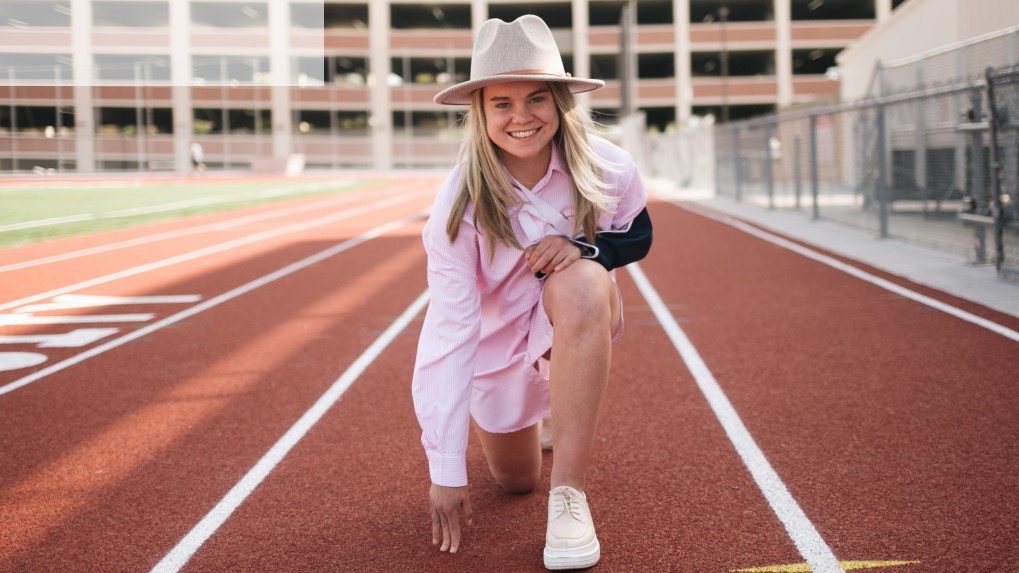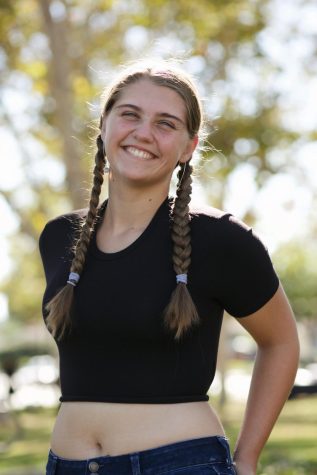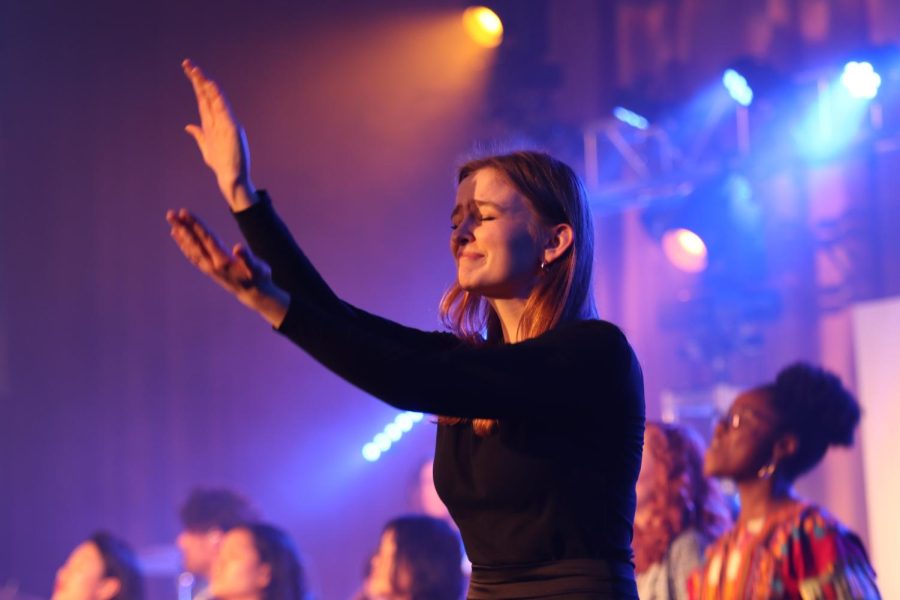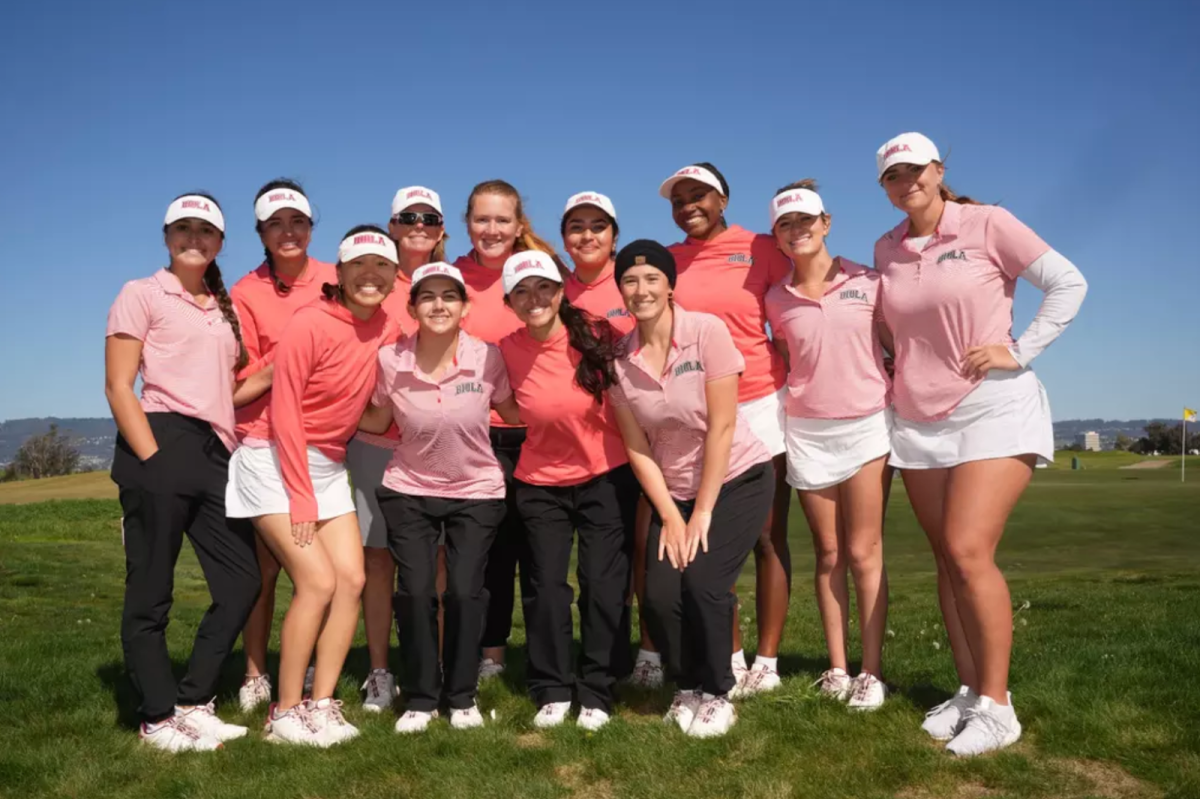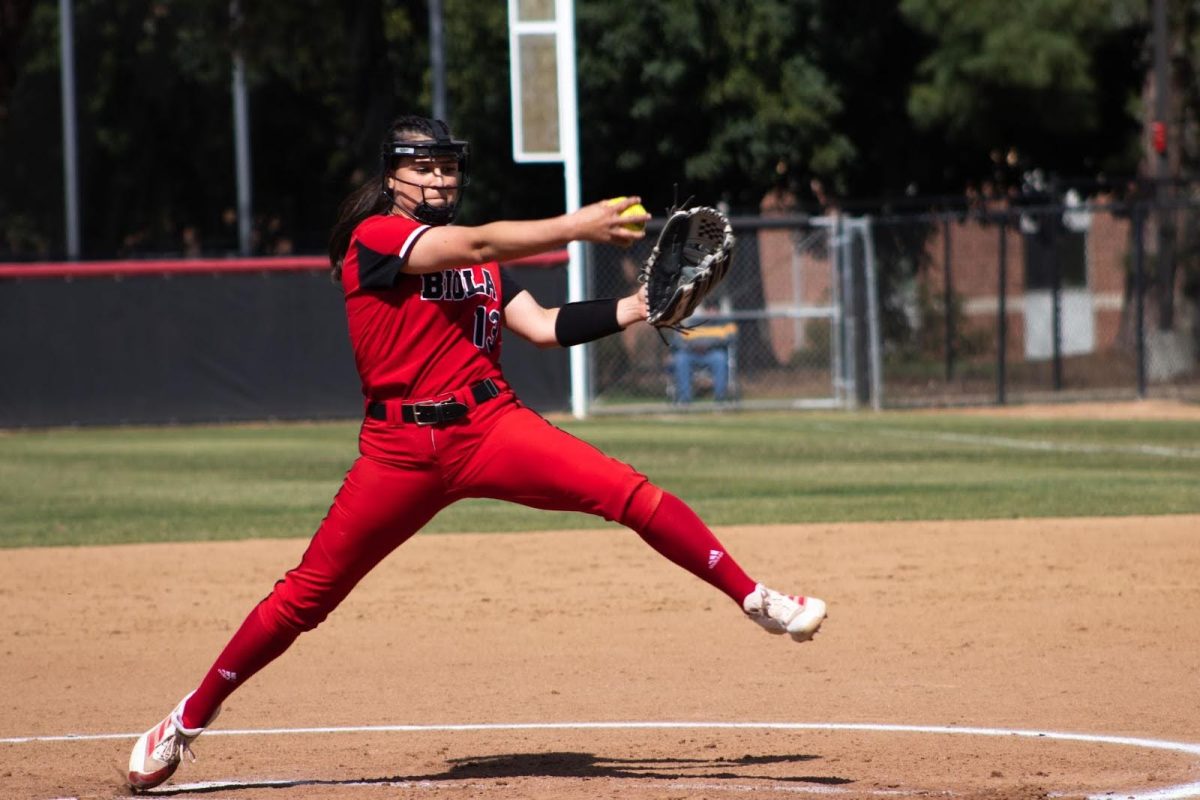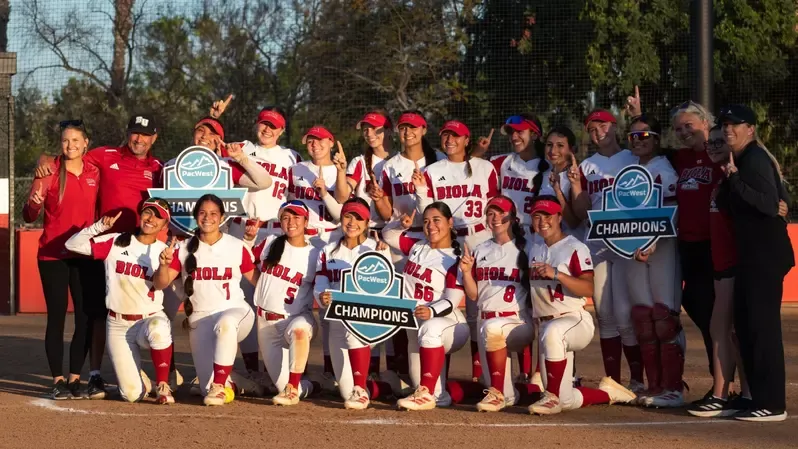Jana Le Roux knew something was amiss when minor injuries took too long to heal and when she broke her hip. After her hip healed, she started running again, but something was still wrong.
“I thought maybe I had COVID because like, my heart wasn’t working,” the junior public health major said.
After being in and out of doctors’ offices, they all said the same thing: “You’re fine.”
Frustrated to the point of tears, Le Roux kept pushing for answers.
“We all knew how frustrating and hard that circumstance was for her because she was a really, really high level runner beforehand,” senior distance runner Connor Bramel said.
Riddled with minor fractures, Le Roux was unable to train in the same capacity as the others did. She took to cross-training with swimming or biking that were easier on her body instead of running.
Finally, the doctors suggested that she take an electrocardiogram scan. With expenses adding up as a South African global student, Le Roux decided to push off the scan until she got home for the summer.
With her sister getting married in May, her parents encouraged her to put off the scan until June so she could focus on her sister’s marriage.
“Great, because then I can run in July and then in August and then go back [to Biola],” Le Roux said. “I really thought that was it.”
2 EWING SARCOMA
The white walls of room number eight in the South African hospital were broken up by the framed picture of a pink flower. Le Roux sat in the room, anxiously awaiting her test results. Le Roux’s doctor came into the room and asked her a simple question: does she want the news now or does she want to wait for her parents?
“No, share with me,” she said.
That was when the doctor told her she had 2 Ewing Sarcoma.
“I think it was almost surreal the first time hearing [she had cancer] because it wasn’t like something I got to really be there for in person as it happened,” Bramel said. “I don’t think it set in fully for like a couple of days.”
With a typical five-year survival rate of 70%, Ewing Sarcoma is cancer that occurs primarily in the bone or soft tissue, according to John Hopkins Medicine. It is most often found in the hip bones, ribs, or long bones such as the humerus. The cancer cells can also spread to other areas of the body, including the bone marrow, lungs, kidneys, heart, adrenal glands and other soft tissues. Le Roux had a 1.4% chance of survival.
TREATMENTS
Urged to start chemotherapy as soon as possible, Le Roux had no choice but to begin the treatment every other week.
The harsh chemotherapy soon robbed Le Roux of energy, vivacity and willingness to eat. However, the systematic medication did its job and shrank her tumor from nine inches down to two, allowing the surgeons to begin the next phase of treatment: radiation of her humerus, a bone in the upper forearm.
To do this, they removed it from her shoulder and radiated it for 20 minutes before returning it to her body as dead bone — little more than a stick.
Trying to build a sense of normalcy amidst her cancer treatments in South Africa, Le Roux would still call and talk with her friends.
One of the weeks before Le Roux was diagnosed, she had called Bramel and said how she really wished she could have Crumbl since the cookies looked good that week. After she said that, Bramel decided he would buy the Crumbl cookies of the week to show Le Roux and use it as an opportunity to talk to her.
“It wasn’t just me checking up on her, it was her asking me about how I was doing,” Bramel said. “So it was cool, because that meant that I got to talk to her at least once a week.”
LE ROUX’S PERSEVERANCE
“A lot of people had confidence that if anyone can handle [cancer], it would be her because of how much trust she puts in the Lord [and] how much faith she has,” senior distance runner Hannah Champness said. “She’s not one to freak out when her life starts to crumble. She knows that God has a plan and she really lives that out.”
Champness said she could be calm about the devastating news because of how Le Roux reacted with faith and confidence in God.
“Obviously it’s heartbreaking. I don’t want to see her go through that but you know, there’s just some peace about it even now,” Champness said. “It was definitely challenging, but it’s been so cool to see how she’s handled it.”
Bramel said the most inspiring part about Le Roux’s journey was how she continued to trust in the Lord and find joy in him despite the chaotic circumstances.
“I can’t tell you how many people I’ve gotten to just like, talk to about the Lord too, as a result of her just being super, super faithful in the midst of that.”
A SURPRISE SEMESTER
After the news that Le Roux was clean from cancer, her doctor shared some bleak news: just because she was clean now did not mean she would stay clean. She would have to do chemotherapy until March to have at least an 80% chance for being cancer free for more than two years.
“I was really disappointed because they told me if this is going to work then you can go back [to Biola in] January,” Le Roux said. “And I was like ‘No wait, like, I’m going to go back January. I enrolled in classes in November because I told myself, ‘you’re going to be clean.’”
With her hope of going back to campus about to be dashed, she asked again if she could go back. Her doctor told her that was unwise — she would have to put off going to school again until March. Le Roux felt differently. She said she felt that God told her that she was trusting chemotherapy to keep her clean rather than him.
During the first week of classes, Le Roux said she was at the lowest she had been through her cancer journey.
“That Monday, Tuesday and Wednesday [I] basically locked myself in [my] room,” she said. “I didn’t look at Instagram — I don’t want to see people at school.”
On that Wednesday, her father came into her room and told her that if she felt she should go back to school, she should. She pulled up plane tickets to California and saw that instead of the usual $2,000 tickets, the price for a ticket to California for that week was $800. The next morning, she emailed her academic adviser and asked if it was possible to could come back to campus the next day as an enrolled student.
Her adviser pulled up her status and informed Le Roux that the registrar never unenrolled her despite her asking them to.
“She was like, ‘You could come tomorrow if you want,’” Le Roux said.
Twenty-four hours later, she was on her way back to Biola.
Despite then having a 15-20% survival rate, Le roux thought it was worth it to come back to Biola and continue to grow at the university.
“I just kind of want to be a normal person again,” Le Roux said.
REUNION
It was a dark, cold morning on January 16 when head coach Sean Henning told his grumpy and tired team that he had to retrieve something from his office. The athletes were confused by the hitch in the normal routine — why were they circled up together in front of Coach’s office?
“I hear somebody say ‘Jana’ and I was like, ‘What?’ And I looked up and she walks out,” Champness said. “It just felt so unreal.”
Tears of happiness welled up from Le Roux’s teammates when she stepped through the door into the circle of people, embracing her friends she had not seen in months.
“I was just in shock that she was actually back and that it had worked out for her to come back so quickly,” Bramel said.
Le Roux, Bramel and some of their other friends made a trip to Crumbl as soon as they were able. Things were looking up for Le Roux. She was able to run again, train and she had plans to compete during the season.
DEVASTATING NEWS
Those plans halted when, on March 27, Le Roux was again diagnosed with cancer. This news came after she was encouraged to get a scan after her humerus broke during a routine visit to her athletic trainer.
“[I was a] little bummed because I was like, ‘Whoa, my arm’s broken. I’m not running again,’” Le Roux said. “Do I go back [to South Africa]?”
The news happened during Biola’s annual Missions Conference — a time when students take a break from their classes and reorient themselves to what God is doing in the mission field.
During the opening session, Le Roux held the Ukrainian flag for the parade of nations. With intentions to do missions work in Ukraine, holding the flag was special to her. With thoughts of cancer permeating her mind, she had to consider what God was calling her to do.
“It was a little bit difficult and because I felt, ‘Oh the Lord’s calling me to the missions field,’ Le Roux said. “I was like, well, I’m not even gonna live to go on the missions trip and so how’s this gonna work?”
During the conference, a Student Missionary Union worker talked to her about the missions field and provided a different perspective. Perhaps this was her missions field right now — her battle with cancer.
“I was like, ‘Yeah, but I don’t want to go do this now,’ Le Roux said. “I want to learn now.”
Just a few hours later in an evening session of the conference, Le Roux heard an opening remark by a Turkish woman whose husband was martyred because he spread the gospel. The speaker talked about forgiving the people who killed her husband and how the Lord called her to her ministry through her brokenness. After her story, American Protestant author Francis Chan came on stage to give the main message.
He explained how people have a specific idea of what they want their mission field to look like, whether that be staying in nice hotels or adopting seven kids. Regardless of their original plan, Chan said, they should be open to answer a different call.
“In that moment, I just knew,” Le Roux said. “I knew I was going to be like the Turkish lady, and this is going to be cancer and he’s going to use me for my suffering and I have to be willing to accept that call.”
Bramel said that many people would see the second diagnosis of cancer as a “slap to the face,” but Le Roux lives it as a privilege to suffer for Christ through her cancer.
“To see her heart is just like the most inspiring thing ever,” Bramel said.
Despite the secondary diagnosis, Le Roux remains hopeful that she can beat the cancer again. If the cancer has spread, she might have a few months left with her only option being chemotherapy. Returning to the intense treatment is not something she wants to do, but she is more open-minded to it than she was before.
“I’ll consider it because I just feel like if we say ‘Well I’ll give you anything; do anything,’ then I have to be willing to do anything,” Le Roux said.
If the cancer has remained localized, the solution is simple: amputation of her arm.
“Just cut it off. That’s how I feel,” Le Roux said. “Maybe I’ll become a paralympic athlete, you just never know.”
Throughout her journey, Le Roux has prayed a number of prayers — for strength, but also to be weak with God.
“When I pray, it’s like, ‘Lord, give me the strength to get through this’ or like, ‘God, help me to be positive’ but like, I don’t pray ‘help me to be weak.’ I just want to be weak with you,” Le Roux said. “I think that’s also important.”
This article first appeared in print on May 1, 2023 in the Chimes Magazine Vol. 2, Issue 4 edition.



